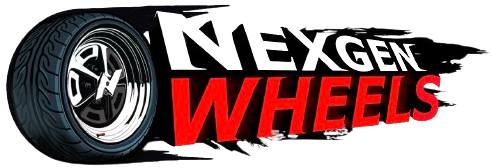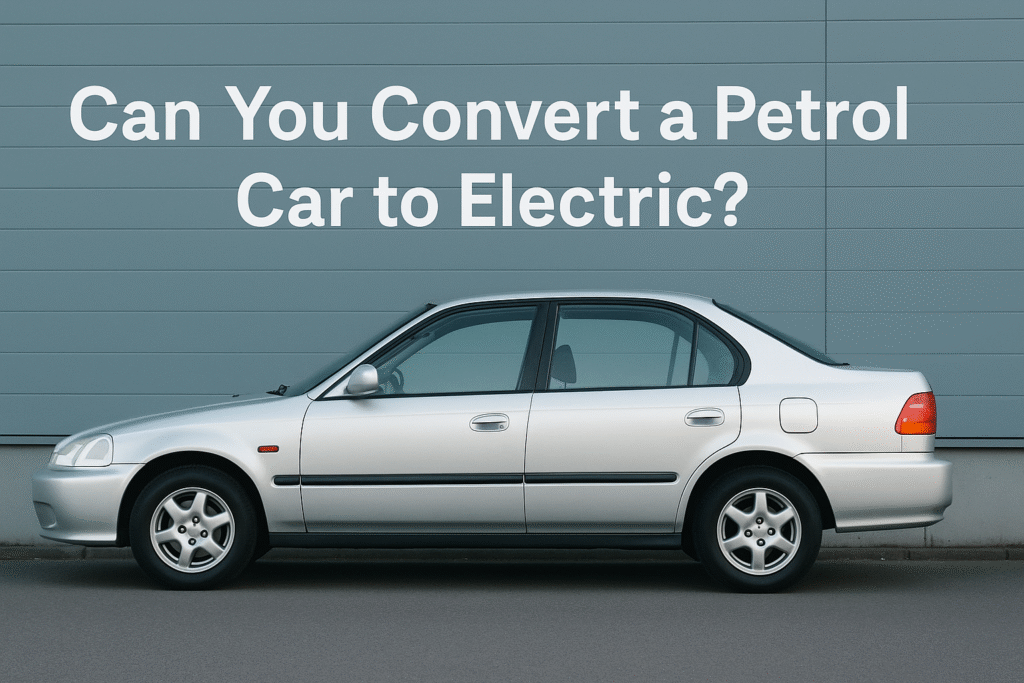Turning your gas-guzzler into a zero-emissions ride might sound like a sci-fi dream—but in 2025, it’s closer to reality than ever. Whether you’re trying to save the planet, your wallet, or just want to be that person at the cars & coffee meet, converting a petrol car to electric is a rising trend across the U.S.—and especially popular among younger drivers who love the idea of vintage-meets-tech.
But how doable is it? Is it affordable? Is it legal? And most importantly… is it worth it?
We’ve got the full lowdown. So grab your cold brew and let’s plug into the possibilities.
What Is an EV Conversion, Anyway?
EV conversion is exactly what it sounds like: replacing your petrol-powered engine with an electric motor and battery pack. You’re basically turning your old-school ride into an EV—without ditching the aesthetic.
This usually involves:
- Removing the internal combustion engine (ICE)
- Installing an electric motor, controller, and lithium-ion battery
- Adding a charger and high-voltage wiring
- Integrating regenerative braking and updated dash components
You’re keeping the car’s body, suspension, and most of the interior—but giving it a futuristic heart.
Think of it as giving your classic car a Tesla-like soul.
The Big Question: How Much Does It Cost?
Here’s the truth: converting a petrol car to electric isn’t cheap. But it’s not outrageous either—especially compared to buying a brand-new EV in 2025.
Average Cost Breakdown:
| Component | Estimated Price (USD) |
| Electric Motor | $2,000 – $6,000 |
| Battery Pack | $5,000 – $10,000+ |
| Controller & Wiring | $1,000 – $3,000 |
| Labor/Installation | $3,000 – $10,000 |
| Extras (dash, brakes) | $500 – $2,000 |
Total: $12,000 – $30,000+, depending on your setup and car model
But remember: you’re getting something truly one-of-a-kind—and skipping gas forever.
Pro tip: Some EV conversion shops, like EV West (California) and Moment Motors (Texas), offer packages tailored for specific cars like VW Beetles, old-school Mustangs, and even Porsches.
Can You Do It Yourself?
Short answer: Yes. Long answer: Only if you really know what you’re doing.
If you’re a weekend warrior with mechanical know-how and access to tools, a DIY conversion is possible. Reddit threads, YouTube series, and forums like DIY Electric Car are filled with how-to guides.
But here’s the catch: it takes time, patience, and a strong grasp of high-voltage safety. One mistake could fry your battery—or worse.
That’s why many Gen Z car lovers go half-DIY: sourcing parts themselves and hiring a pro for final assembly.
Best Petrol Cars to Convert to Electric in 2025
Not every petrol car is a great EV conversion candidate. You want something:
- Lightweight (so your battery doesn’t get drained fast)
- Spacious (to fit the battery pack)
- Simple (older cars = less computer integration hassle)
Top Picks:
- Mazda Miata (NA/NB) – Light, iconic, fun to drive
- Volkswagen Beetle – Tons of kits available, retro vibes
- Honda Civic (1990s) – Reliable, tons of space under the hood
- Jeep Wrangler (2-door) – For off-roaders who want torque and silence
- Chevy S-10 Pickup – More room for batteries in the bed
Even classic muscle cars like the Ford Mustang or Camaro are getting the EV treatment lately—perfect for younger collectors who want that rumble without the emissions.
Is It Legal to Convert a Petrol Car to Electric in the U.S.?
Yes, converting a petrol car to electric is legal in most U.S. states—but there are hoops to jump through.
Here’s what you need to consider:
- Emissions Testing: In states like California, you’ll still need to meet inspection requirements—even if your car is zero-emissions.
- Title & Registration: You’ll need to re-register your car as an EV, which may require proof of conversion and safety certification.
- Insurance: Some insurers don’t cover DIY builds. Try specialty providers or classic car insurers familiar with conversions.
Check out SEMA’s EPA guidelines or your state DMV site to be sure. States like Oregon, Colorado, and Washington are especially friendly to EV mods.
Performance & Range: Is It Actually Worth It?
Let’s talk torque. One of the coolest parts of going electric is instant acceleration. Even a converted Civic can outrun a stock V6 Mustang off the line (just ask the YouTube channel Rich Rebuilds).
But it’s not just about speed:
- Range: Most conversions get between 80–150 miles per charge, but high-end builds can hit 250+
- Charging Time: Level 2 home charging takes 6–10 hours. DC fast charging is possible but costly to set up
- Maintenance: No oil changes. No transmission repairs. Just tires, brakes, and battery health
So yeah—it’s not just about looking cool. You’re also investing in long-term reliability.
Why This Trend Is Growing Among Young Drivers
Millennials and Gen Z are fueling the rise in EV conversions. Why?
- Eco-conscious mindset: Cutting emissions without contributing to new car production
- Individuality: Stand out from the Model 3 crowd
- DIY/retro culture: Think #CivicToElectric, #EVSwap, and those viral TikToks of converted Datsuns
- Cost-consciousness: Owning a car with zero fuel bills is major
And let’s not ignore the growing EV-friendly infrastructure: with Tesla’s Supercharger network opening to other brands and charging stations popping up at Target and Walmart, it’s never been easier to own an EV—custom or not.
“I wrote this topic in 2024. If you wanted to explore it further, you could click the link below.”
A Complete Guide on Petrol to Electric Car Conversion
Final Gear Shift: Should You Convert Your Petrol Car to Electric?
The short answer? If you’ve got the funds, the curiosity, and a serious love for cars—it’s a yes.
Converting a petrol car to electric is more than just a trend. It’s a bridge between nostalgia and the future, between classic design and clean energy. Whether you’re driving through downtown Austin, pulling up at an EV meet in Brooklyn, or just want to give your old Miata a second life—it’s a choice that says, “I care about cars, and I care about the future too.”
At NexgenWheels, we believe the coolest rides don’t just go fast—they move the culture forward. So if you’re thinking of making the swap, start researching, budget wisely, and don’t be afraid to reach out to the EV conversion community. They’re some of the most passionate gearheads out there.


